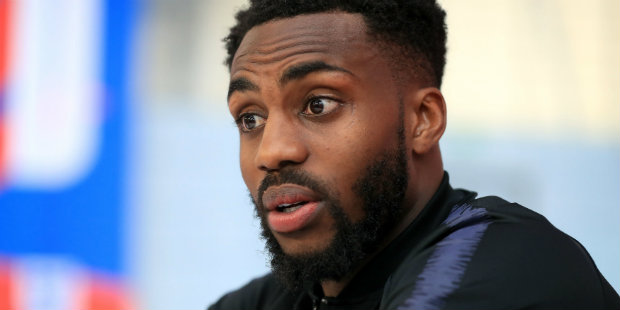
Michael Carrick believes it is great that the likes of Danny Rose feel able to speak about mental health issues after the former Manchester United midfielder opened up about his fight with depression.
The 37-year-old revealed in his autobiography ‘Between the Lines’ that the Champions League final defeat to Barcelona in 2009 was a gut punch which left him in a rut he struggled to escape.
Carrick did not want to speak about his mental health problems during his playing days, but the United coach is glad the likes of England left-back Rose feel they are able to nowadays.
“The book is more of what I’ve gone through and how I’ve seen it rather than maybe what’s seen from the outside and what’s been won, and what game we’ve played well and what game we haven’t,” Carrick said.
“This is a massive part of my journey, really, and what I went through.
“It was never a decision ‘shall I put that in, shall I not put it in?’ or ‘am I comfortable or not?’
“I am totally comfortable with it and that’s how it was, you know? I am not ashamed of it in any way.
“Maybe I could have dealt with it better at the time or spoke to someone and it might not have gone on for so long or so bad.
“You can easily look back on all sorts of things and do it differently, but that’s just how it was.
“The fact that some like Danny Rose came out quite recently and said it, that wasn’t a factor in me (putting in the book), but it’s great that he feels he can come out and be honest like he has.
“I’ve just felt more comfortable waiting until I’ve finished and putting it down like I have into the book. That’s just how I’ve dealt with it.”
The stigma surrounding mental health issues is slowly fading, but football remains a macho environment where people often prefer to keep things to themselves.
Asked if the mechanisms around mental health in the game had improved, Carrick said: “But no one knew (about mine).
“I pretty much kept it to myself, which is kind of me, my personality. I am quite independent, a stubborn type. I’ll deal with it myself.
“My wife knew, probably even to the extent of it affecting my football and day-to-day life maybe not as much, but she knew.
“My mum and dad and my brother, again probably nowhere near as much maybe as what it was for me.
“But that was just me, really. In some ways I think I wish I had spoken to someone because again it might not have been as bad, but then that was just my way of dealing with it and coming through it.
“You are probably better speaking to someone and getting some help, but I probably didn’t recognise at that stage what I was going through either until you get into it, and by that stage it’s maybe too late.
“Then I was thinking ‘I’ll be alright, I’ll be alright, I’ll get through it’.
“All I could do was picture getting back playing well and having that feeling of playing well and winning again, and winning trophies.
“I just wanted that. That’s the feeling that I was craving again and that’s kind of what got me through it.”